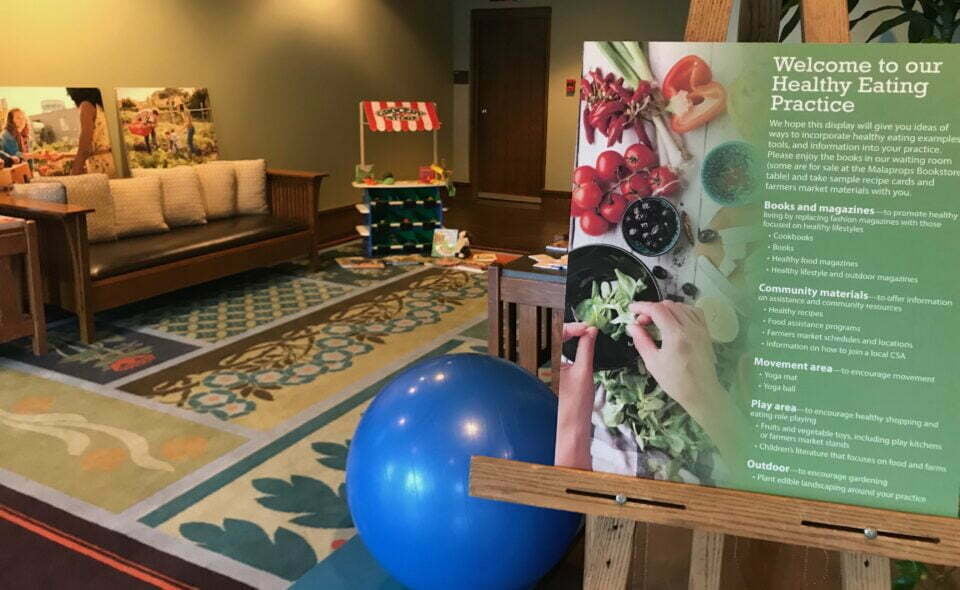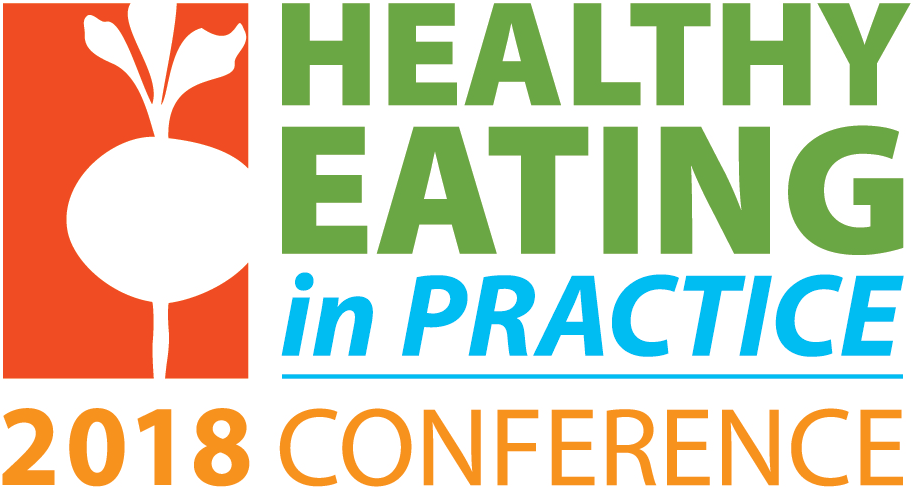
In 2018, ASAP presented Healthy Eating in Practice, a national conference for physicians and other healthcare professionals. The conference focused on changing the culture of healthcare to better support healthy eating behaviors. The conference offered experiential farm and cooking education alongside medical expertise. Partnerships and programs formed through conference planning shaped ASAP’s Farm Fresh for Health approach and initiatives.
Healthy Eating in Practice took place Aug. 26–29, 2018, at the Omni Grove Park Inn in Asheville, NC. ASAP presented the conference in partnership with Duke University World Food Policy Center, University of North Carolina Center for Health Promotion and Disease Prevention, and Mountain Area Health Education Center. Dr. Gabriela Maradiaga Panayotti, Medical Director of Duke Children’s Healthy Lifestyles Program, and Alice Ammerman, Director of the UNC Center for Health Promotion and Disease Prevention, served as course directors.
A few of the voices and ideas behind Healthy Eating in Practice were recorded for episodes of Growing Local Radio. Listen in or read the transcripts below.
- Making Healthy Eating Common Practice: An interview with Dr. Brian Asbill of Asheville Cardiology Associates and president of ASAP’s board of directors.
- Roots of Health: An interview with Healthy Eating in Practice keynote speaker Dr. Daphne Miller.
- Putting Healthy Eating Into Practice: Listen in on “The Secrets of Kid-Friendly Meals,” a cooking workshop presented by chef Alexis Young and physicians assistant Katherine Valencia Caro at Healthy Eating in Practice.
- Making Healthy Food More Accessible: Listen in on “Healthy Eating on a Budget,” a cooking workshop presented by farmer Melissa Harwin and nutritionist Sarah Reinhardt at Healthy Eating in Practice.
The Healthy Eating in Practice conference program is outlined below. Contact Sarah Hart with additional questions.
Plenary Sessions
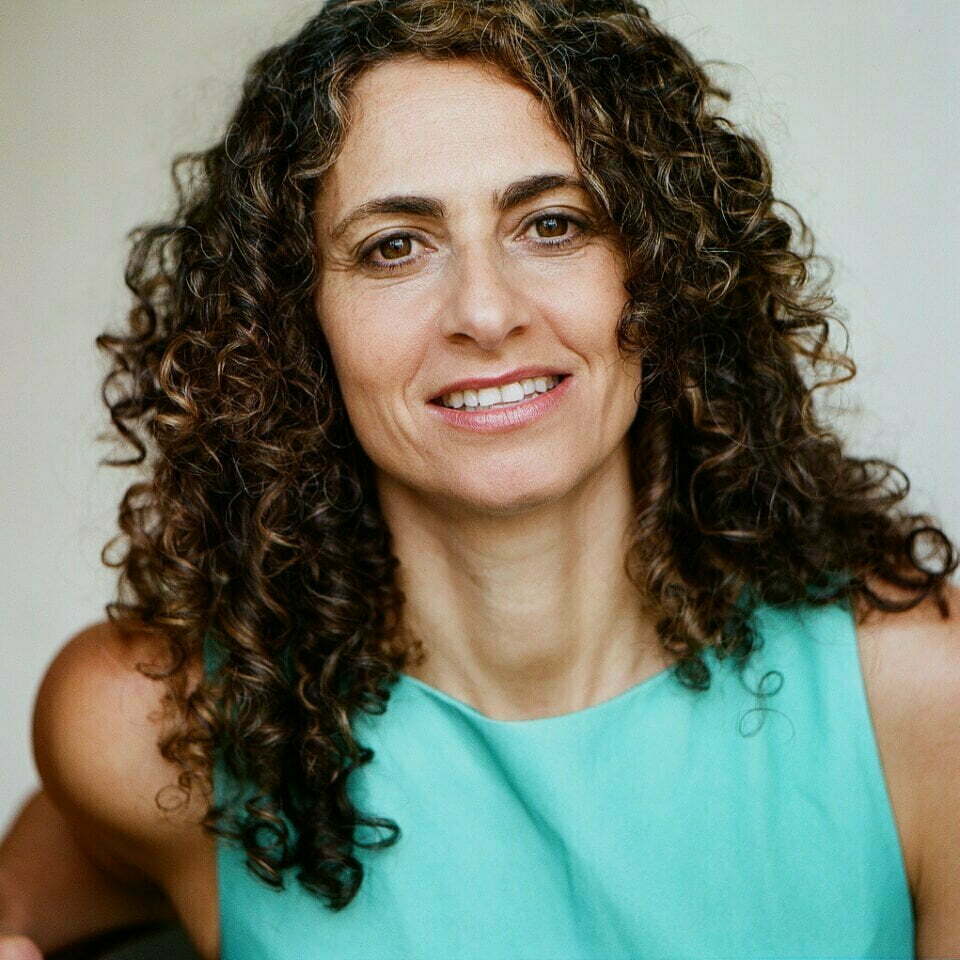
The Intersection of Farms, Food, and Health
“By shopping at farmers’ markets and farm stands, by buying from CSAs, by cooking our own food, and by voting with our forks and our ballots, we have collectively managed to spawn a growing network of healthy farms and a new generation of farmers who think like farmer ecologists. It is time that we bring this same purpose and imagination to medicine.” —Farmacology
Daphne Miller, a practicing family physician, author, documentarist, professor, international speaker, and a gardener, shares her insights in the emerging field of health ecology.
The Evidence Base for Healthy Eating
William (Bill) Dietz, one of the leading global authorities on nutrition and health, sets the stage with a look at where we’ve been and where we are now with the latest research on healthy eating and disease prevention.
How School Food Works
Grab a tray and head through the buffet line for an exemplary farm to school lunch. Donna Martin, the child nutrition director in Burke County, Georgia, and immediate past president of the Academy of Nutrition and Dietetics, and Anupama Joshi, executive director of National Farm to School Network, will provide an overview of the realities of school lunch and the trend toward farm to school around the country.
Healthy Food Access and the Role of Physicians and Payers
Patrick Conway, president and CEO of Blue Cross Blue Shield of North Carolina and a practicing pediatrician, will address how healthy food access and other nonmedical factors impact our health, and the role of practitioners and payers in understanding and acting on this.
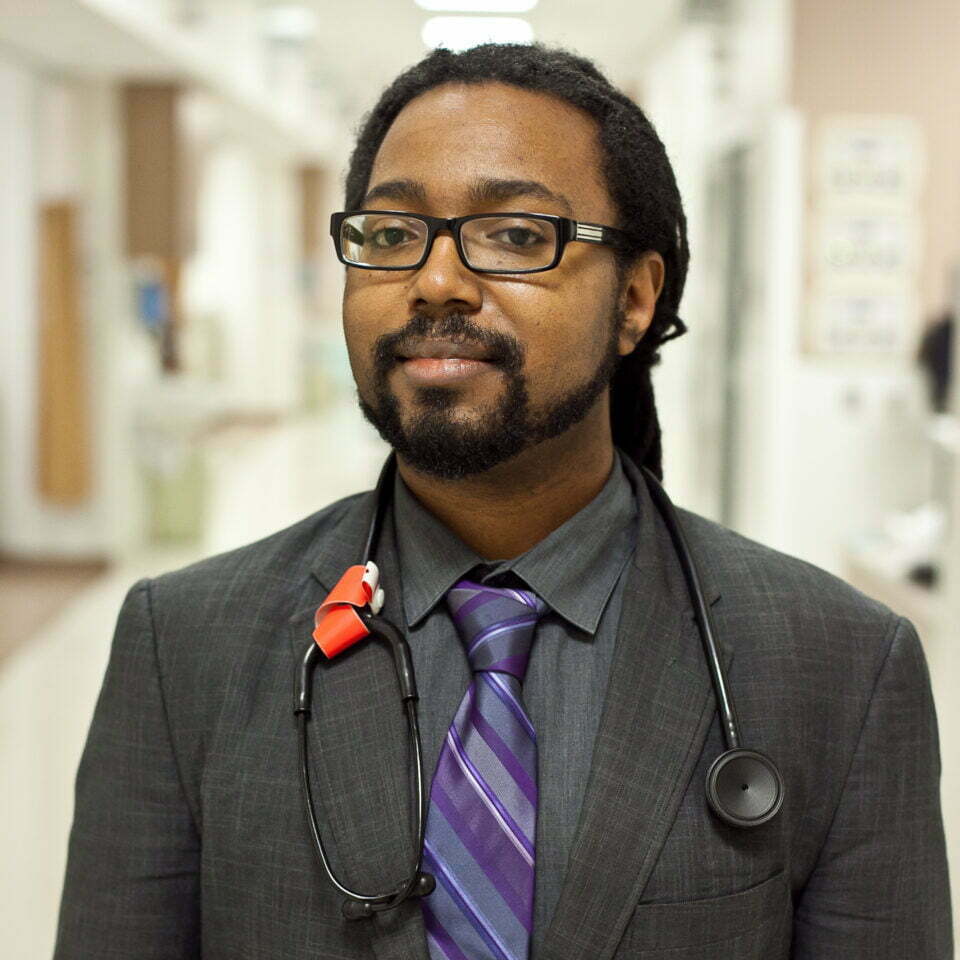
Food, Equity, and Health
Why are you eating hot dogs every day? Dr. Edwin K. McDonald IV, both a trained chef and a board-certified gastroenterologist, helps us navigate food swamps, deserts, and health disparities, drawing examples and solutions from his own experience and Chicago communities. Dr. McDonald’s interest in the effects of nutrition on health and disease stem from his experience with Project Brotherhood—an innovative clinic dedicated to providing accessible, affordable care for black men on Chicago’s South Side. While training barbers to serve as health educators, he became keenly aware of the impact of social determinants of health, especially nutrition.
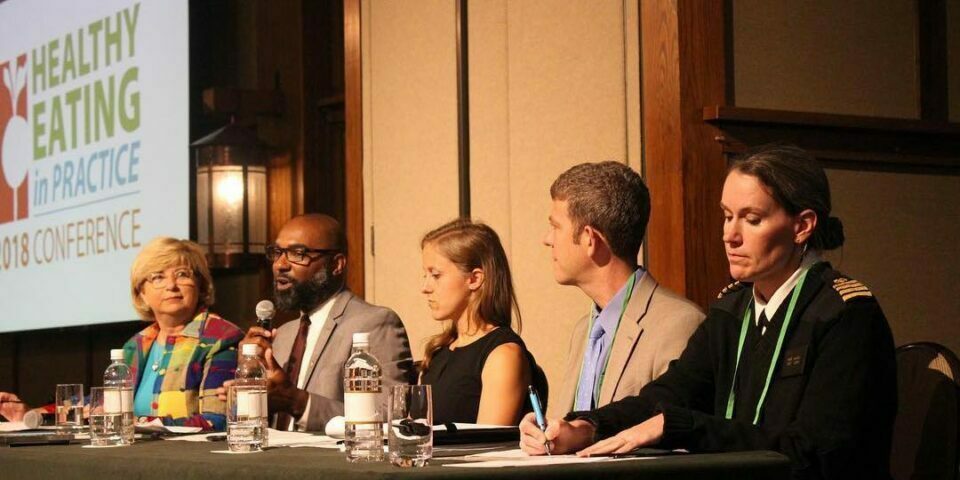
Effecting Change in Local and National Food Policy
In a panel discussion, food and health experts Adam Zolotor (North Carolina Institute of Medicine), Heidi Blanck (CDC), Sarah Reinhardt (Union of Concerned Scientists), and Dwayne Wharton (The Food Trust) discuss food policy and its connection to health and health equity and offer examples and realistic takeaways for attendees to begin engaging in this work. Moderated by Kathy Higgins from Blue Cross Blue Shield of North Carolina.
Family Style: Best Practices in Early Childhood Development
As you dine family style, Dianne Ward, principal investigator of Go NAP SACC, will explain why serving meals in this manner is a best practice, and what else can help set children on the path to a life of healthy eating.
Nutrition Education in Our Medical Schools
Most medical students receive only perfunctory training in nutrition and healthy eating—for themselves or their patients. But training in culinary medicine is on the rise. Jennifer Trilk, who directs the Lifestyle Medicine curriculum at University of South Carolina School of Medicine Greenville, will talk about what students are doing in the classroom, teaching kitchen, and garden.
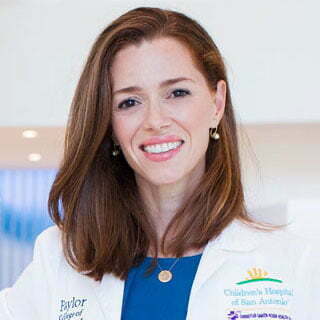
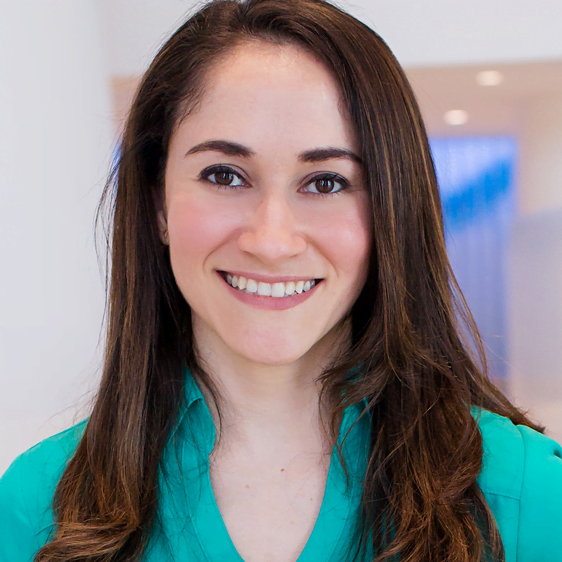
In Practice: Culinary Health Education for Families (CHEF) at The Children’s Hospital of San Antonio
Rooted in the belief that food is medicine, CHEF teaches children and families basic nutrition and practical cooking skills, with the long-term goal of motivating communities to adopt healthier eating habits. Classes are offered for children’s families at various locations in the community. Physicians and other medical providers can refer their patients to CHEF. Hear from Medical Director Julie La Barba and Nutrition Education Specialist Celina Parás.
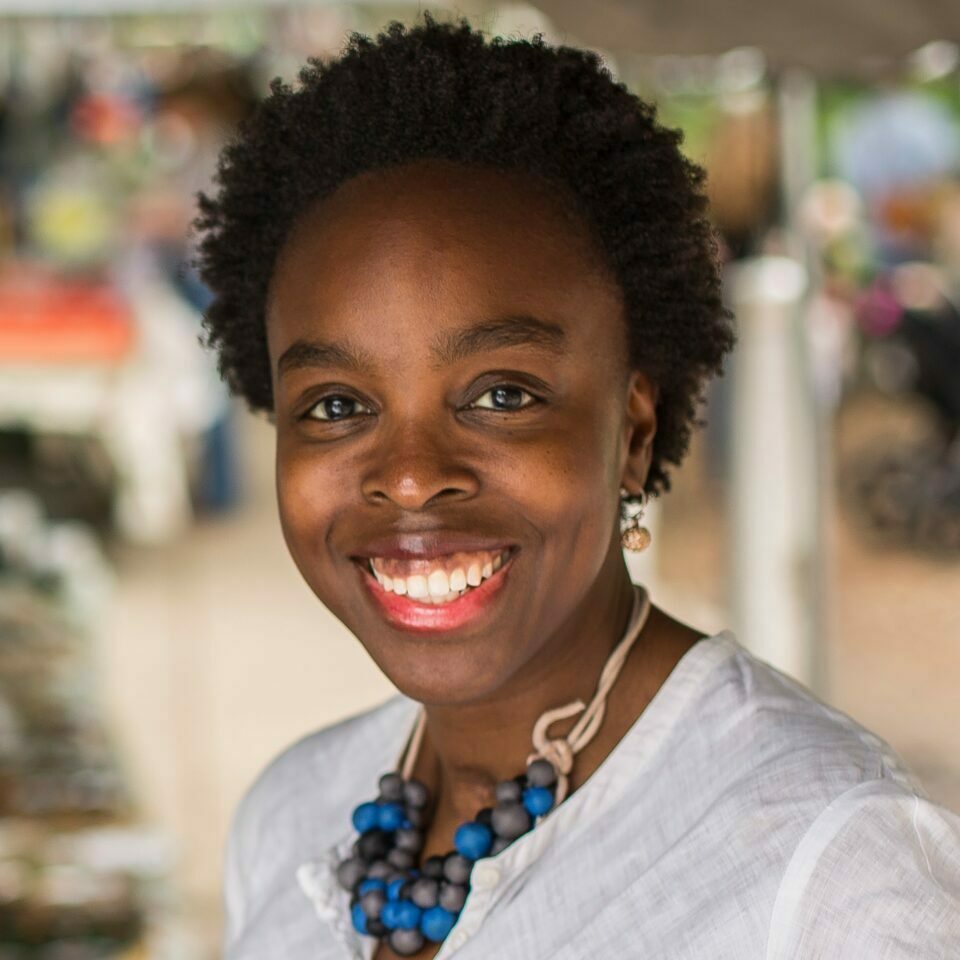
In Practice: Deaver Wellness Farm at Lankenau Medical Center
Lankenau Medical Center, outside of Philadelphia, is one of only a few hospitals nationwide to take the progressive step of planting and maintaining a year-round organic garden onsite that is integrated into how healthcare is delivered. In addition, over 10,000 medical students tour the farm and learn about the role of fresh vegetables and healthy eating in preventive care. The farm produces more than 5,000 pounds of organically grown produce per year, donated to patients to support healthy eating habits and provide fresh food. Hear from Associate Administrator Chinwe Onyekere.
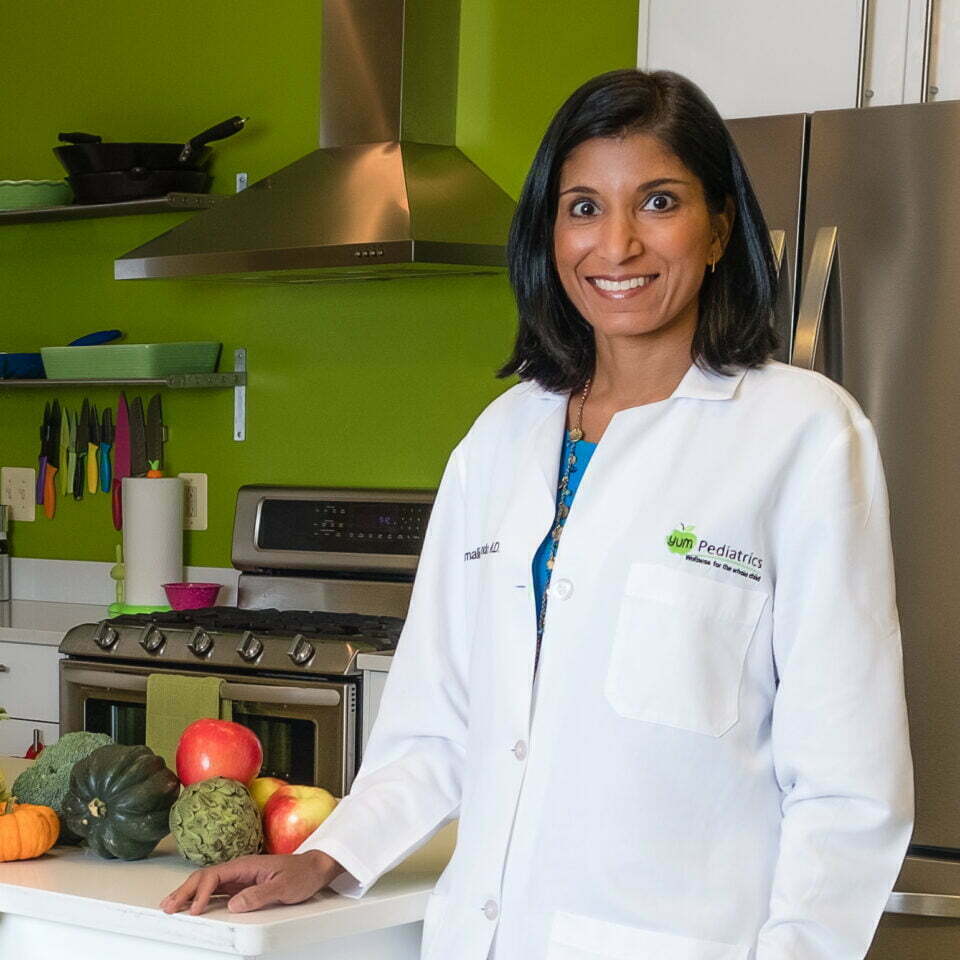
In Practice: The Doctor Yum Project
In response to the growing rates of childhood obesity, both nationally and in her own clinic in Spotsylvania County, Virginia, pediatrician Nimali Fernando started the website doctoryum.com to help her patients and families overcome the barriers to eating well. Through innovative hands-on cooking instruction programs in the teaching kitchen and garden, the project inspires family members of all ages take control of their health by preparing meals together, strengthening family connections, and building healthier communities.
Maximizing Impact: How Connections Across Food Systems Research Can Drive Change Agents
Food policy expert Kelly D. Brownell explores why health and obesity research doesn’t result in effective policy and why perfect research may not create systemic change. He also explains why it is imperative for the growing population and for the environment that healthy eating research is effectively implemented to create change. Brownell will review major tactics that harness the power of research to advocate for policies that would support healthier diets and impact chronic disease.
Breakout Sessions
Produce Prescription Programs
Produce prescription programs are springing up in clinics and hospitals all across the country. Providing produce prescriptions allows patients to access free or discounted fruits and vegetables. Hear from leaders of two successful organizations, Denise Blake of Wholesome Wave Georgia and Stacy Carroll of Hungry Harvest, about how these programs work and how you can tap into this growing movement and prescribe healthy food to patients.
Models for Integrating Nutrition Education
There are a multitude of resources available to physicians who want to integrate nutrition education into their practices. Hear from two about programs that they have put into place (Complete Health Improvement Program and Food for Life) and how you can implement this in your own practice. Presented by Brian Asbill (Asheville Cardiology Associates) and Vicky Scott (Asheville Gynecology & Wellness).
Worksite Environments that Promote Healthy Eating
Modeling is the first step for changing behaviors. Not only will environments that support healthy eating benefit your staff, it will provide effective modeling for your patients too. This session is led by Laurie Stradley and Garth Davis of Mission Health, which was recognized by the National Business Group on Health as having one of the country’s best workforce health and wellness programs.
Farm to Hospital
Hospitals are embracing their role as models for health when it comes to the meals they serve and the food they provide. Procuring food from local farmers is a win-win for hospitals and communities. This workshop will share stories from across the country and provide simple and sound strategies that can be put into place in any community. Presented by Diane Harris (Centers for Disease Control and Prevention) and Jennifer Obadia (Health Care Without Harm).
Cultural Context of Food
Understanding the cultural significance of diet not only improves relations with patients, it also helps increase effectiveness. Making culturally appropriate recommendations will resonate with patients much more than a “one-size-fits-all” plan. Learn from the experiences of a Latina physician and Latina dietitian. Presented by Katherine Valencia Caro and Gabriela Maradiaga Panayotti (Duke Pediatric Healthy Lifestyles).
Food Insecurity: Screening and Resources
Physicians are beginning to link the significance of food insecurity and health among their patients. Gain a deeper understanding of these screening tools, as well as federal nutrition programs such as WIC (Women, Infants, Children), SNAP (Supplemental Nutrition Assistance Program), and more. Presented by Trish Hipgrave (Swain County Health Department), Jennifer Trippe, and Glenn Wise (MANNA FoodBank).
Responding to Patients’ Questions About Specific Diets
Paleo, juice cleanses, detox diets, calorie counting…don’t feel up to date on the latest diet? Since no two patients are the same, it can get tricky. Discover ways to address patients’ questions about specific diets and feel confident in providing appropriate responses while managing the patient visit. Presented by Benjamin Aiken (Avenu Health) and Jenny Favret (Duke Pediatric Healthy Lifestyles).
White Coats As White Capes: Physicians As Advocates
Physicians are well acquainted with their roles as advocates for the individual patient. But how do you advocate for healthier food in schools or increased funding for SNAP? Learn how to become an effective advocate and determine the sphere (local, regional, or national) you want to influence. Presented by Lindsey Haynes-Maslow (NC State University, University of North Carolina at Chapel Hill).
Diabetes Prevention in a Native American Community
American Indians and Alaska Natives have the highest diabetes prevalence rates of all racial and ethnic groups in the United States. The Cherokee Indian Hospital in North Carolina is tackling diabetes with a place-based model and will share lessons learned and strategic tips that you can incorporate into your work with indigenous people and communities. Presented by Nilofer Couture and Tracy Wolfe Birchfield (Cherokee Indian Hospital).
Motivational Interviewing Workshop
All physicians are familiar with the frustration when patients fail to follow recommendations. Become a more effective communicator with your patients in a manner congruent with your patients’ values. Building a collaborative relationship with your patients will empower them to develop their own commitment to change. Presented by Paul Nagy (Duke University School of Medicine).
Methods for Making Prevention Billable
Our current healthcare system is often too centered around billing regardless of patient outcome or success. Dr. Sal explores preventive services such as preventive physical examinations and annual wellness visits through Medicare services. Additionally, he’ll discuss the methods to make group visit patient health a positive experience for patients with methods to approach insurance companies for successful billing and documentation. Presented by Salvatore Lacagnina (Lee Memorial Hospital).
The Benefits of Community Benefits
Hospitals are recognizing the vital link between healthy food access and community health outcomes and are putting their Community Benefits resources to work on solutions. In this session, Jennifer Obadia will share Health Care Without Harm’s new “Delivering Community Benefit: Healthy Food Playbook.”
First Food and a Healthy Gut: Importance of Breastfeeding and Microbiome
Nobody disputes the health benefits of breastfeeding anymore. But how does breastfeeding impact the microbiome? Find out more about microbiomes and the connection between breastfeeding and the prevention of obesity later in life. Presented by Carl Seashore (Department of Pediatrics, University of North Carolina).
Farm Field Trips
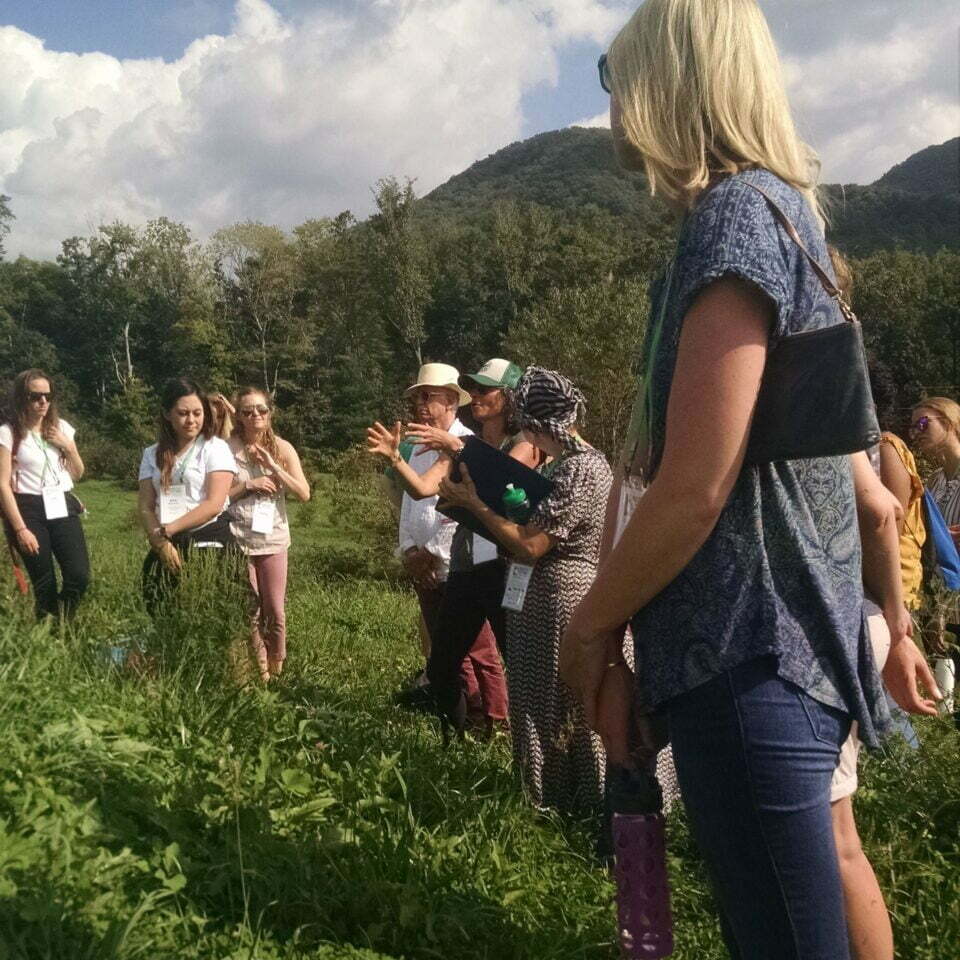
A Conversation with Daphne Miller
In writing and researching for Farmacology, Daphne Miller visited six farms in order to discover the impact that farming has directly on our health. Miller used her keen sense of storytelling to straddle the divide between agriculture and medicine. Hear her in conversation with Jamie and Amy Ager, owners of Hickory Nut Gap Farm and the brand Hickory Nut Gap Meats.
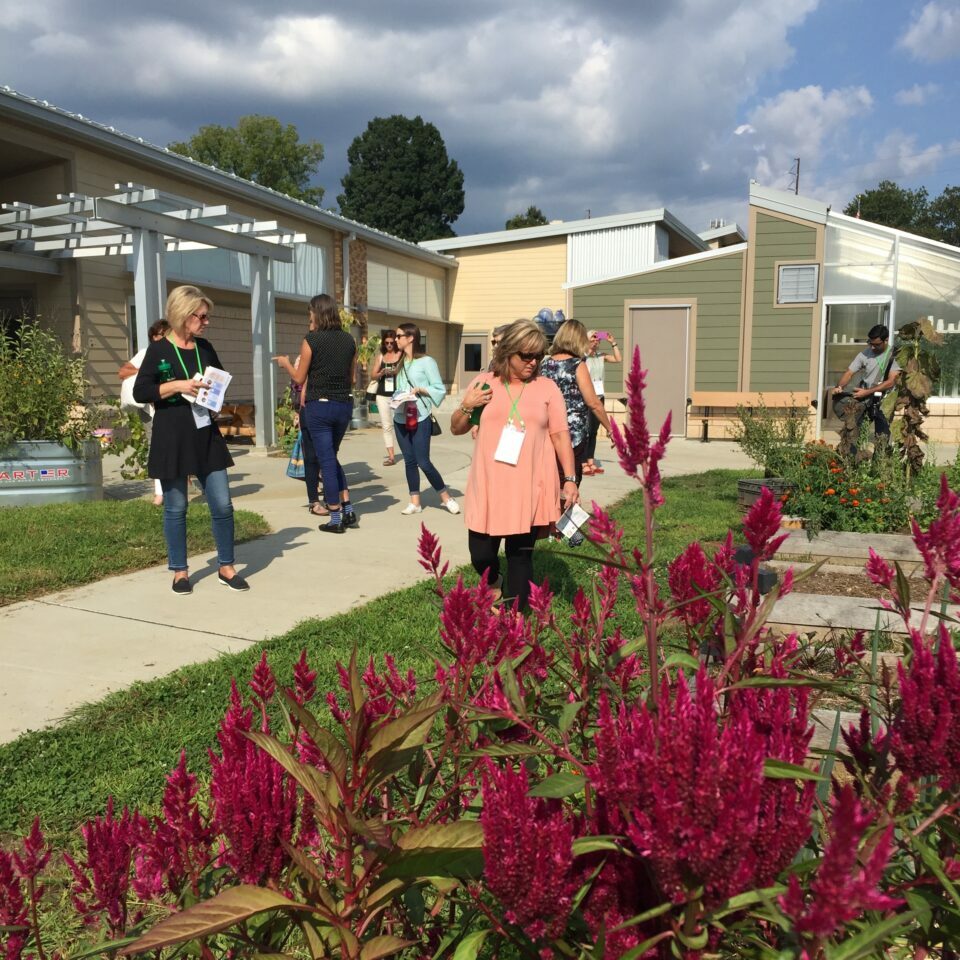
The Magic of a School Garden
See with your own eyes the power of a successful school garden and the tactics that bring it to life. Isaac Dickson Elementary School is founded on the concept of experiential education for its students, making it a ripe playground for farm to school activity. Container gardens just outside the doors of most classrooms, raised beds across the campus, and a greenhouse complete with composting worms are interwoven into the students’ daily routines. Emily Jackson, founder of Growing Minds and a pioneer in the Farm to School movement, will explore the benefits and challenges of bringing children into the garden with Isaac Dickson garden coordinator Joan Pinegar.
How Nurses Can Engage with Healthy Eating Practices
Wonder what a direct link between nurses and farming looks like? Meet KT Taylor, nurse at Mission Hospital and founder of KT’s Orchard and Apiary, where she grows a variety of apples, peaches, nectarines, raspberries, pears, and local honey. Taylor will offer a tour of her farm and insight into combining two demanding careers. While on the farm, J. Danielle Martin, a nurse and grant director at Western Carolina University, will lead a discussion on how nurses can best engage their patients—and themselves—in healthy eating and other healthy lifestyle practices.
Urban Gardening and Community Health
Patchwork Urban Farms is a cooperative, multi-plot farm in the city of Asheville. Farmer-founder Sunil Patel grows and produces eggs, herbs, flowers, and perennial food crops on 15 patches, all within the city limits. Patchwork aims to integrate land, landowners, farmers, workers, and consumers to re-vision and re-establish a vibrant, village-scale food economy. The field trip will visit its main hub at Pearson Community Space in the historic Montford neighborhood. Amy Lanou, professor of health and wellness at University of North Carolina Asheville and a Patchwork land partner, will discuss the connection between urban agriculture and community health, looking both at professional farm models such as Patchwork as well as community gardens, which incorporate social justice, sustainability, and economic viability, in addition to mental and nutritional health.
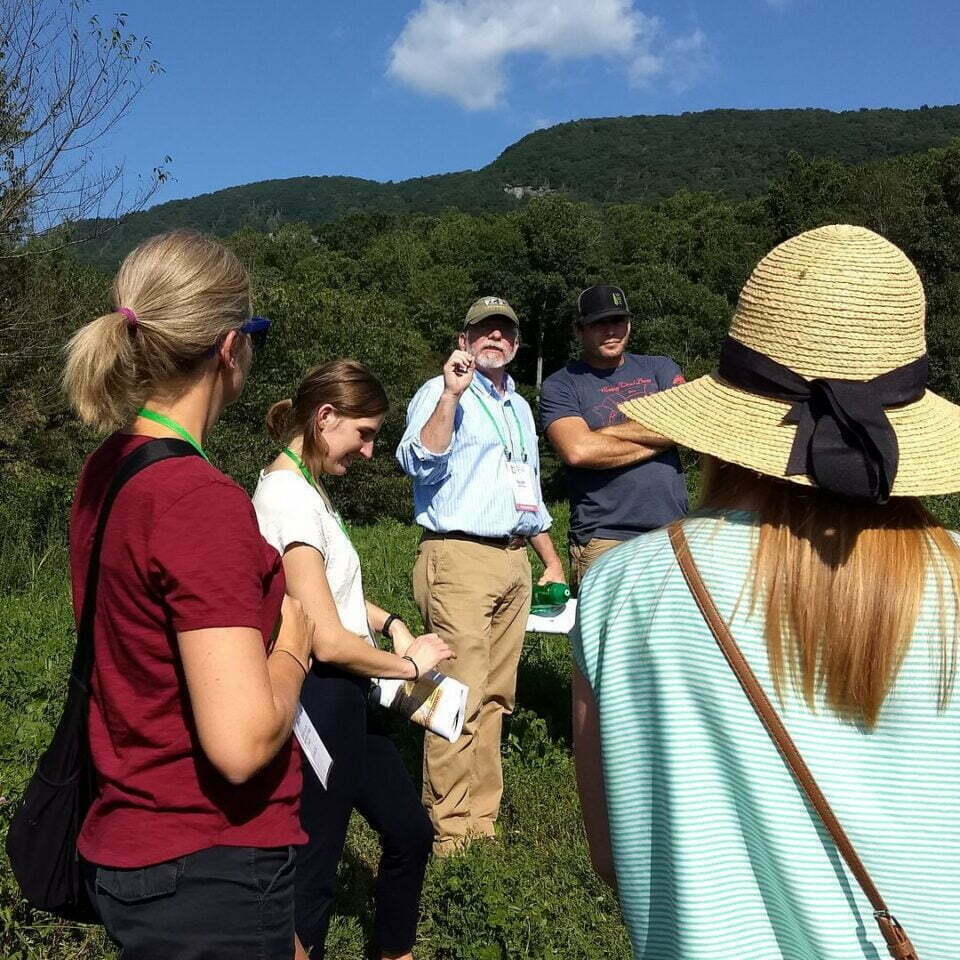
Physicians and the Farm Bill
How does what we know about health and medicine help us understand the Farm Bill? This session will focus on how our approaches to sustainable farming and health help us understand the structure and framework behind the Farm Bill, and how the many complicated pieces of the Farm Bill fit together. Scott Marlow will talk through some of the major myths and issues of the Farm Bill, and how the health community and others can participate in Farm Bill and other food issue advocacy effectively. This session is designed to challenge common ideas of farm and food policy, and deepen individual’s understanding and ability to connect with the broader agricultural community, drawing lessons from Hickory Nut Gap Farm in Fairview. Jamie and Amy Ager, owners of Hickory Nut Gap Farm, will lead a tour of the farm.
Developing Nutrition Skills As an Adolescent and Young Adult
We all know that healthy eating habits are formed at an early age, but how do we develop and solidify these skills with excitement rather than dread? Recent studies suggest that cooking and food preparation experience at an early age instills long-term health benefits and nutritional responsibility. And yet food education is often missing from our school system. Learn how to translate nutritional basics and guidelines to younger minds with Amy Paxton Aiken, an experienced childhood nutrition director and middle school teacher. Aiken will discuss her successes and challenges in working with a potentially difficult age group in a space where student inquiry is essential—Warren Wilson College’s student-run farm. The 110-acre farm doesn’t just supply campus food—it’s also where pre-vet students learn about animal care, economics students flex entrepreneurial muscles, and agriculture students put book learning into practice. Farm manager Asher Wright will lead a tour of the farm.
The Social Capital of Farmers Markets
In a society built on technology and isolation, farmers markets maintain the ability to keep us talking to each other. Shoppers build trust in their local farmers market and rely on their vendors to provide insight and healthful produce, cultivating a sense of trust and loyalty. Bridging between farmer and consumer can lead to shared experience and connections that no longer are innate to our everyday interactions. Charlie Jackson, executive director of ASAP, has over 20 years of experience creating socially just and sustainable local food systems and communities. Hear him discuss how building social capital around farmers markets can increase health outcomes and impact social determinants of health—all while seeing it in action at the weekly West Asheville Tailgate Market. ASAP staff Allison Perrett and Jessica Sparks-Mussulin will lead attendees through a tour and taste test.
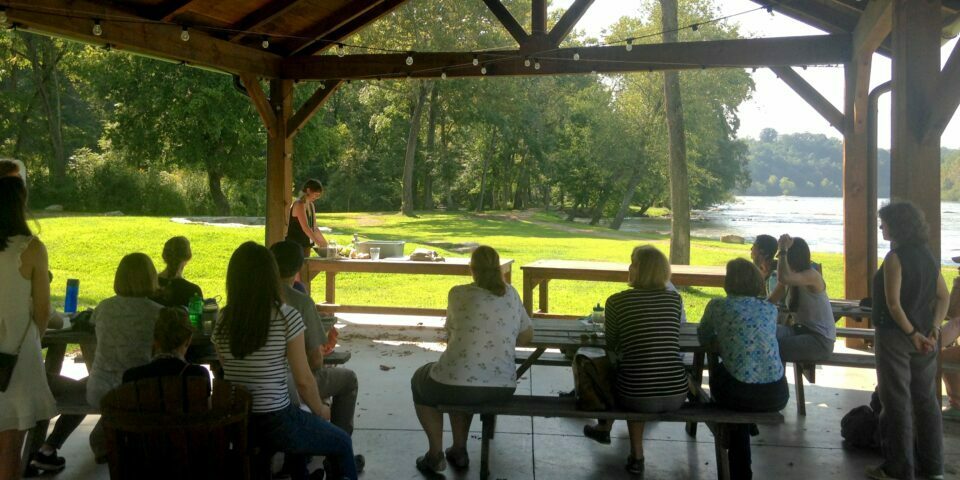
Probiotics, Fermentation, and the Microbiome
Scientific research has brought to light the connection between your intestinal microbiome and overall health, impacting disorders from asthma, autism, chronic fatigue, and Parkinson’s disease. Listen to Dr. Cynthia Libert discuss her insights into gut microbiome, drawing on over 10 years of experience in brain health, detoxification, hormone balancing, nutritional therapy, and food as medicine. Sarah Archer, owner of Serotonin Ferments, utilizes her 14 years of fermenting experience to use food as gut and mind medicine. Learn how to use probiotics and fermented foods in our everyday lives. Farm manager Justin Aiello will lead a tour of Olivette Farm, a four-season, bio-diverse vegetable farm, part of the unique Olivette Community, a 346-acre agrihood, offering an alternative to the traditional neighborhood.
Cooking Workshops

Navigating a Plant-Based Diet
Researchers have shown that a more plant-based diet may help prevent, treat, or reverse some of our leading causes of death. Plus, plant-based intervention groups often report greater diet satisfaction, increased energy, better sleep, and mental health improvement. Learn several meat-free recipes that don’t compromise flavor, and gain the confidence to walk your patients through the process as well. Taught by Brian Asbill (Physician, Asheville Cardiology Associates), Fred Stichel (Registered Dietitian, MAHEC Family Medicine), Reza Setayesh (Chef, Bim Beri Bon), and John Fleer (Chef, Rhubarb).
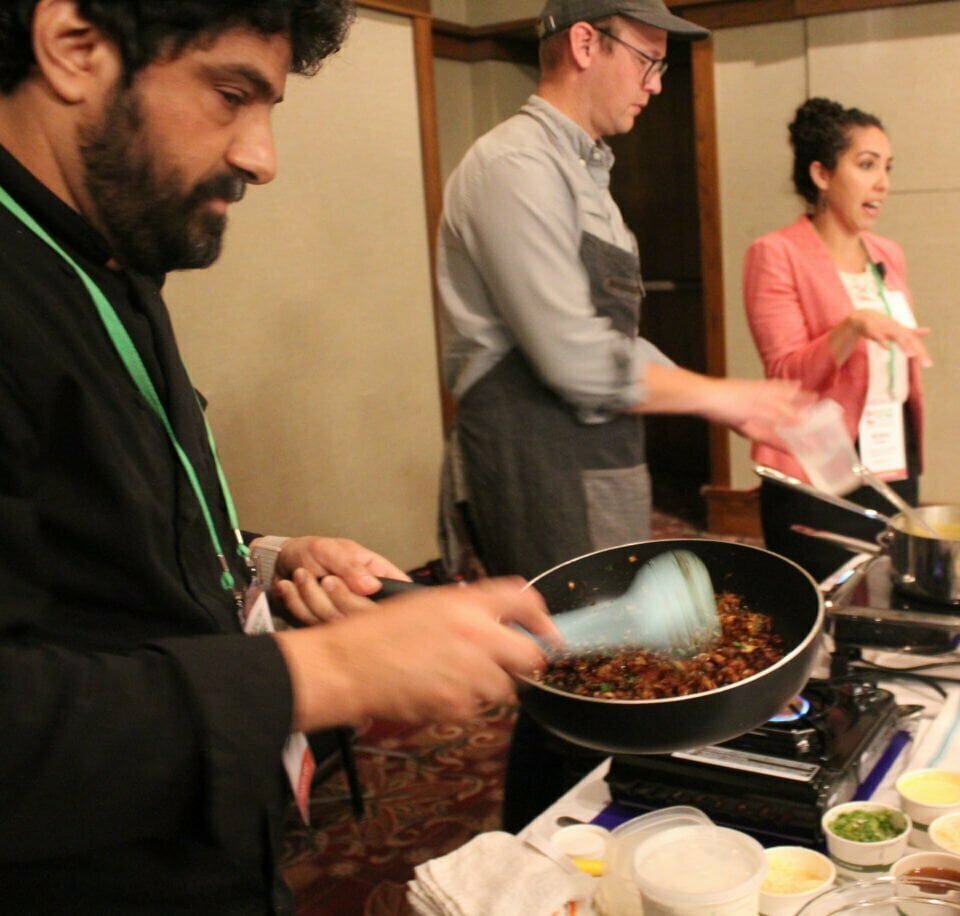
Meals on the Go: Packing Healthy Lunches
Mornings can be hectic, and often it’s easy to forego packing a lunch—for yourself and your kids. Learn to plan ahead with healthy make-in-advance meals that go beyond the sandwich, and mastermind weekend prep projects that can jump-start lunches throughout the week. Taught by Kristine Ponce (Registered Dietitian, MAHEC OB-GYN) and Meherwan Irani (Chef, Chai Pani Restaurant Group)
Secrets to Kid-Friendly Meals
Parents know that feeding their children a balanced, healthy diet sets them on the path to success. But sometimes getting kids to eat what’s best is an uphill battle. Learn to cook several kid-approved dishes to compete with the unhealthy temptations vying for kids’ attention. Taught by Katherine Valencia Caro (Physicians Assistant, Duke Pediatric Healthy Lifestyles) and Alexis Young (Chef, Child Care Center of the First Presbyterian Church of Asheville)
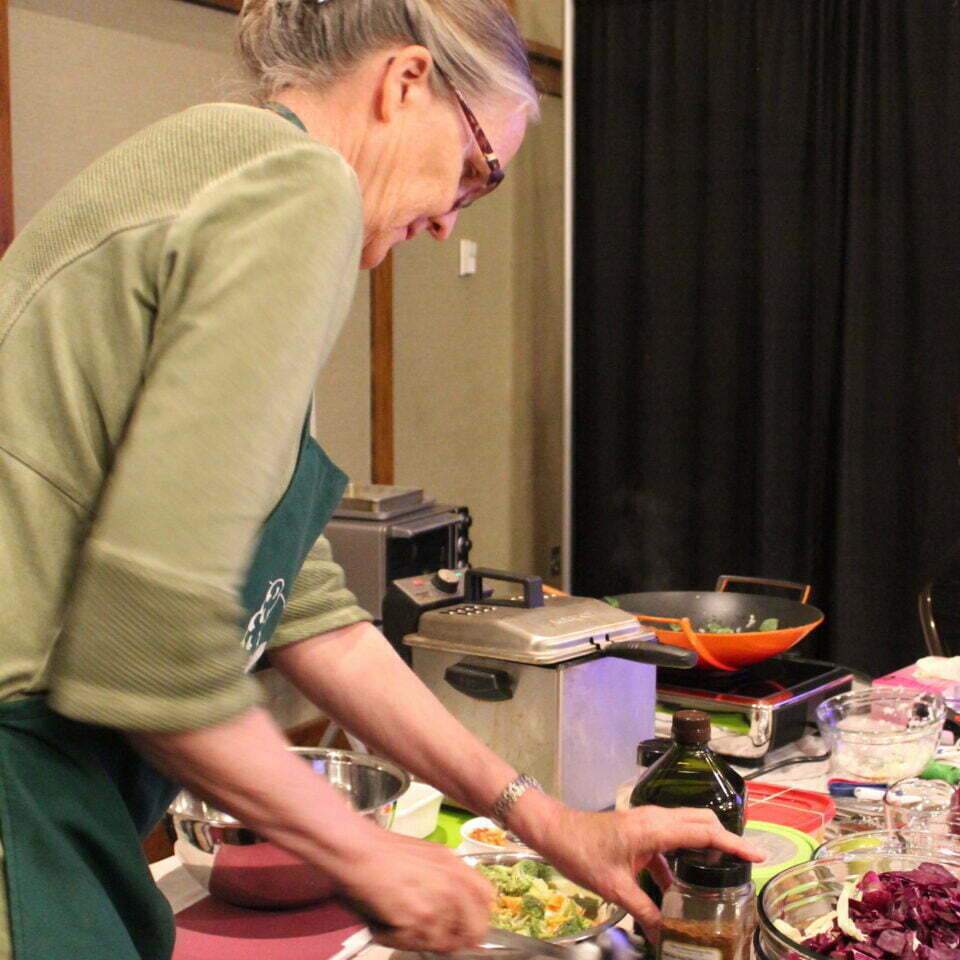
Translating the Mediterranean Diet in the South
The Mediterranean Diet has been shown to have a positive impact on cardiovascular disease prevention. Cardiovascular disease rates are extremely high in the “stroke belt” in the southeastern U.S., but dietary patterns are different from the Mediterranean diet. Alice Ammerman (Director, University of North Carolina’s Center for Health Promotion and Disease Prevention) and Thomas Keyserling (Internist, Division of General Medicine and Clinical Epidemiology, University of North Carolina Chapel Hill School of Medicine) have adapted an alternative “Med-South” diet.
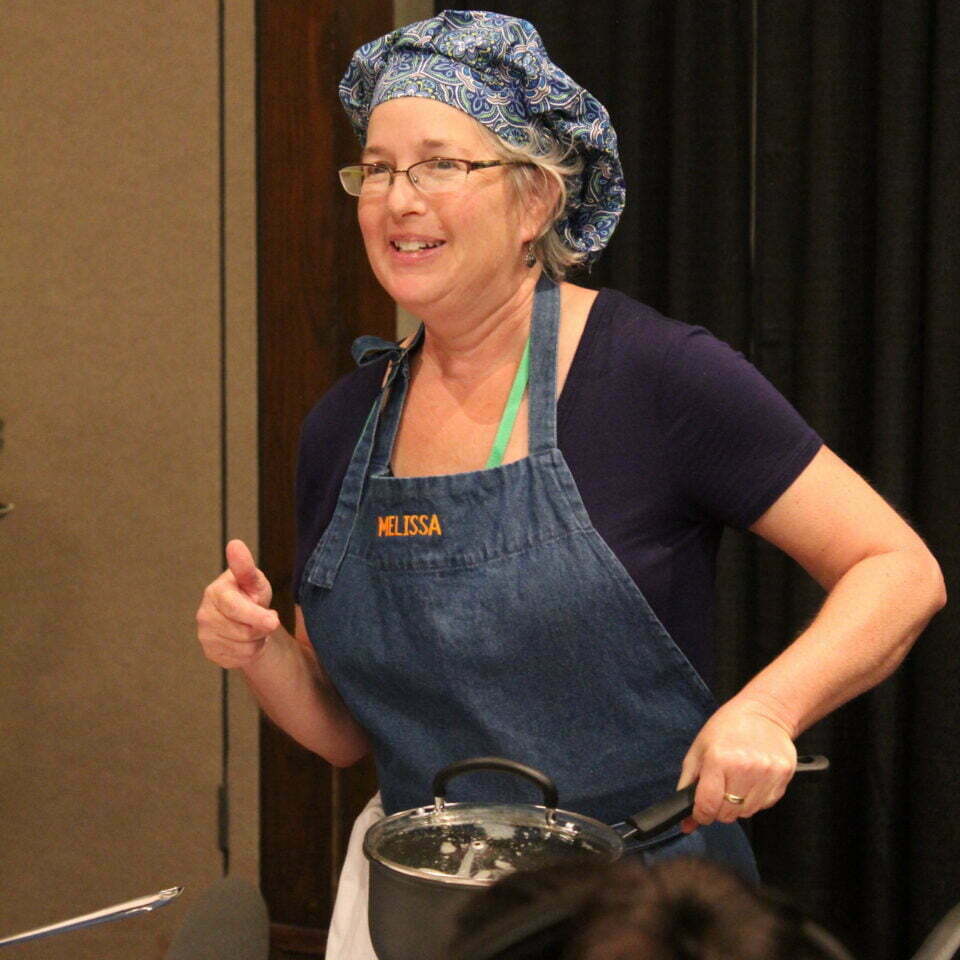
Staying Healthy on a Budget
A limited budget can make eating healthfully seem like luxury. It doesn’t have to be. See how you can stretch your dollars to create meals that still carry their weight in flavor and sustenance. Taught by Jennifer Trippe (Registered Dietitian, MANNA FoodBank), Sarah Reinhardt (Registered Dietitian, Union of Concerned Scientists), and Melissa Harwin (Farmer, Highgate Farm).
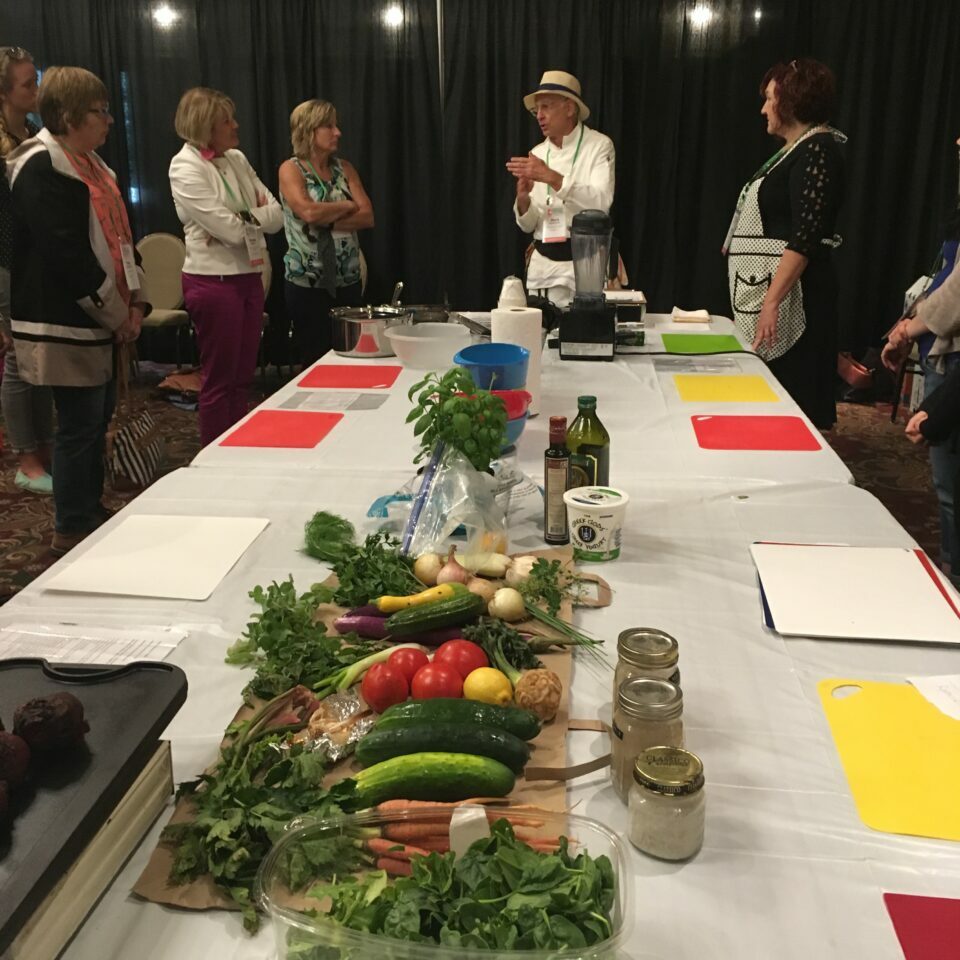
Seasonal Cooking from a CSA
CSAs (Community Supported Agriculture) are a great way to develop long-term relationships with your farmers—and ensure that you’ll have a refrigerator full of healthy, local, seasonal food. You’ll receive a weekly box of farm products, such as produce or meats. But what do you do when your fridge is filled with unfamiliar vegetables? Learn to approach seasonal cooking through the eyes of a chef. Taught by Denise Barratt (Registered Dietitian, Vine Ripe Nutrition) and Mark Rosenstein (Chef Consultant, founder of The Market Place).
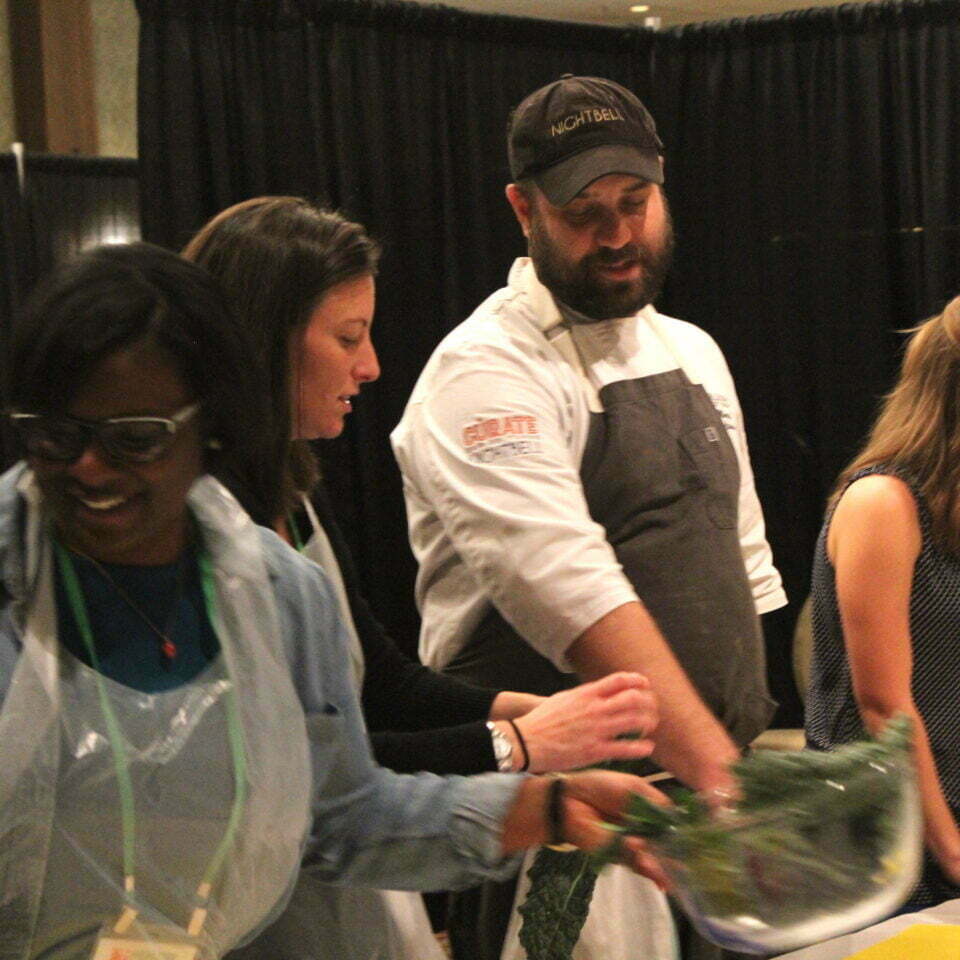
Power Snacking
Between-meal hunger pangs don’t have to sabotage a healthy eating plan. Learn to prepare and reach for satisfying, energy-packed snacks and gain practical tips you can pass on to your patients and use to power through your own busy days. Taught by Jenny Favret (Registered Dietitian, Duke Pediatrics Healthy Lifestyles Program) and Eric Morris (Chef, Nightbell).
